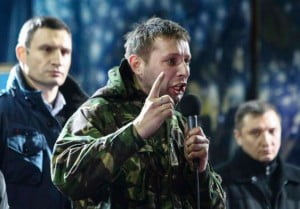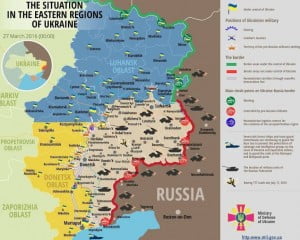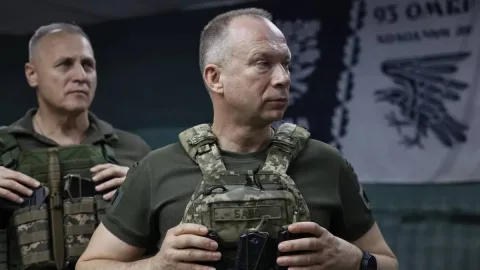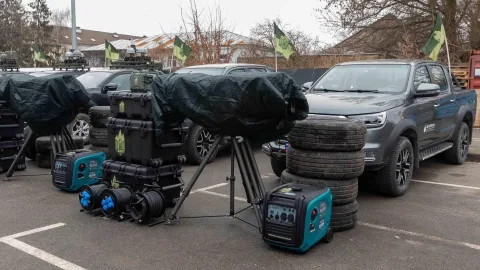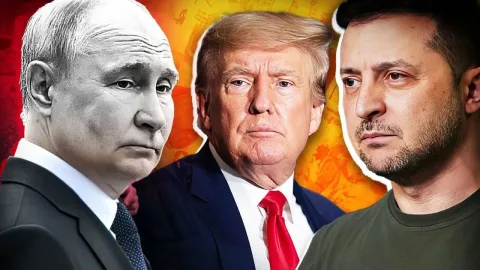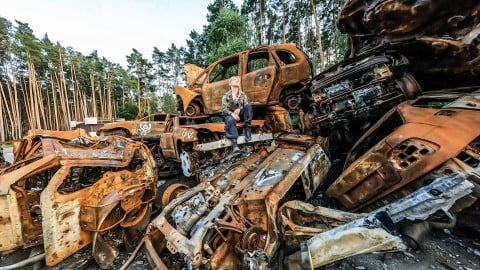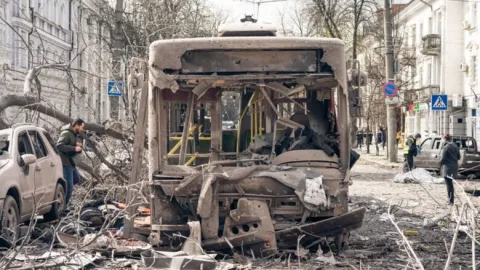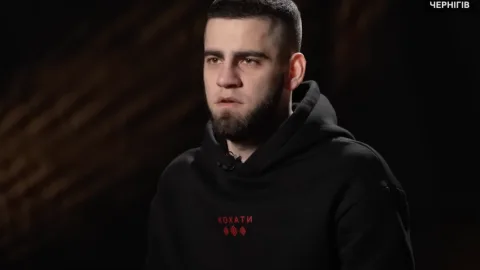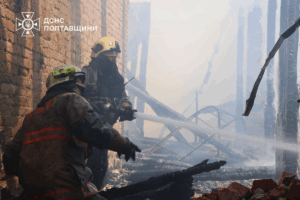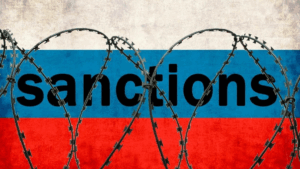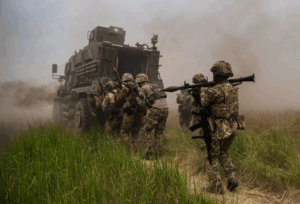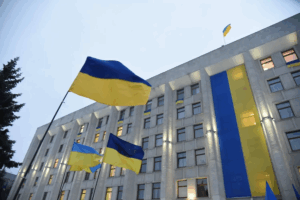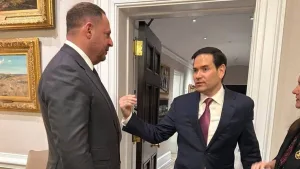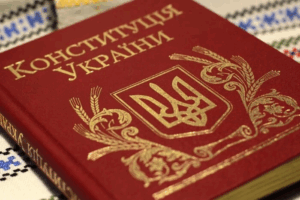The U.S. has done quite a bit to support Ukraine but it needs to do more. Interview with David Kramer
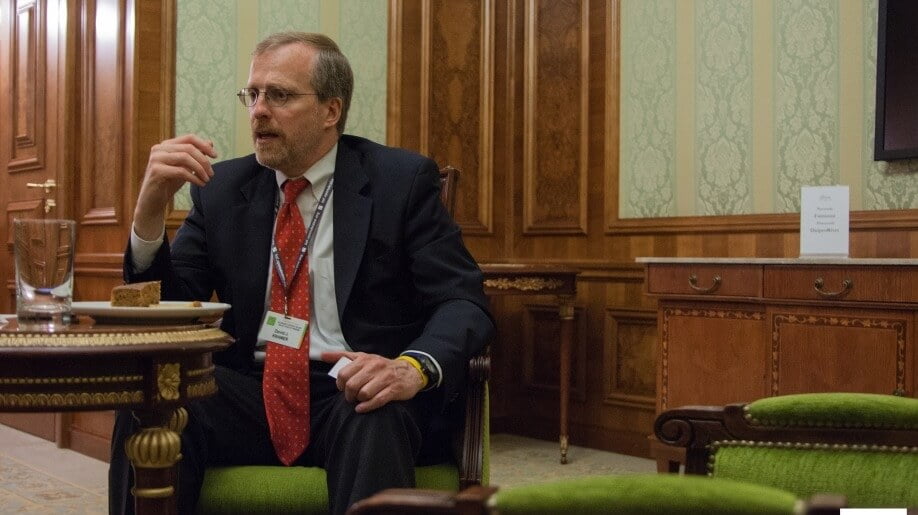
To-the-point and frank-wrap-up speech of David Kramer, Senior Director for Human Rights & Democracy with the McCain Institute on the closing day of Kyiv Security Forum enjoyed full attention of the audience.
EMPR caught up with Mr. Kramer on the margins of forum to hear his grounded take on what the U.S. should be doing and does not currently do to support Ukraine in the face of Russian aggression.
EMPR: Is the U.S. doing enough to support Ukraine? Can it be doing more, what exactly?
David Kramer: The short answer is no, the United States is not doing enough to support Ukraine. It’s done quite a bit, I don’t want to understate what the U.S. has done. But I think the main need Ukraine has now is lethal military assistance. The United States needs to provide that, it needs to lead that way, because other countries will not do it unless the United States says it’s okay. (…)
In terms of economic assistance the United States offered another billion dollar loan guarantee. So it has done its job in that area I would say. The Europeans could be doing more. George Soros has identified various sources of funds that have been unspent for other assistance packages in the EU, I wish his recommendations would be followed. So there’s more that the West can and should be doing, there’s no question about it.
Then there’s the issue of sanctions. Here too, the United States has done a decent job but not a sufficient job, it should be doing much more not just maintaining the current sanctions which unfortunately is the current debate – it’s not about ramping up sanctions, it’s “can we maintain existing sanctions”. United States again should be leading the way and ramping up sanctions including, in my view, against Putin himself.
I think the Obama administration has confused its goals. It has said maintaining unity would be EU as a goal, it’s not a goal, it’s a means, it’s a tactic to accomplish what should be the two goals: to get Russia out of Ukraine and to support Ukraine and help it be successful.
EMPR: Why in your opinion the U.S. does not arm Ukraine?
D.K.: It boils down to the decision of one person, and that’s Barack Obama. (…) In our system the person who has the final say on foreign policy is the President of the United States. He has refused to do it. Congress has the legislation last year authorizing military assistance but it can’t force Obama to do it. I think it’s a terrible mistake on the President’s part. I think it reflects a poor understanding of how Putin would react. The concern at least stated publicly on the part of the President – it would lead to escalation. I think the opposite is true – I think Putin fears deeper engagement by the United States, he does not want a conflict with the United States. And our unwillingness to provide the military assistance actually increases the risk of escalation rather than decreases it.
EMPR: Are there possibly any hidden motives?
D.K.: There is the interest I think the President has which is not to be bothered by this problem, he has contracted responsibility for dealing with the Ukraine-Russia crisis to Chancellor Merkel. The United States has largely been absent in terms of leading the diplomatic efforts. Secretary Kerry made a visit to Sochi. I think it was an unwise trip on his part. I don’t know why he bothered to travel all the way to Sochi to meet with Putin to hear no new answers, no new solutions, no new ideas from the Russians that portrayed his visit as the U.S. essentially acknowledging its policy has been wrong for the past year and it’s recognizing it needs to change its policy. And that’s an unfortunate impression to leave with the Russian audience to say nothing of Ukrainian audience. So I regret that the President has not personally shown more interest in leadership on this issue, I think this is an issue that demands the involvement of the President of the United States working together with the Chancellor of Germany and others but it really sends a bad signal if the President is not directly involved. I do not want to suggest that he’s been completely uninvolved, early on he was. (…) I recognize he has Iran to deal with, he has Islamic State, China, domestic issues but at the end of the day the President of the United States has to show involvement, there’s no substitute for having the U.S. President involved. (…)
EMPR: In your opinion does an average American citizen know enough about current Russian aggression in Ukraine, is he/she concerned and should he/she be?
D.K.: You can imagine this two ways. There has been polling done that shows very strong anti-Russian sentiment in the United States, anti-Putin sentiment in particular. That doesn’t automatically translate into strong support for Ukraine, but in certain parts of the U.S. there is strong support, in places like Chicago and others where there’s an ethnic community that is very interested. (…) I think for most Americans who might follow this they see the Russian aggression, the Russian invasion against the country that didn’t provoke it, that doesn’t deserve it.
Then you can measure it at least on the Congress since the Congress is supposed to represent the American people. You look at the vote in December of last year for “The Ukraine Freedom Support Act”, it was unanimous consent, every member supported it. There was a resolution recently passed it had a few votes against but very few. So despite the efforts of Russian propaganda, of Russian influence-pedaling, of certain analysts in Washington who take the pro-Kremlin line it’s not having an effect on Congress and it doesn’t seem to be having much impact on the population at large.
EMPR: Your background is in Soviet studies, if you allow, why did you choose such a theme for your studies? Have the recent events changed your perception of the region?
D.K.: I majored in Soviet studies for two reasons. One when I went to high school in my home town of Massachusetts we had a choice of taking Russian or French, so I took Russian, most students took French. But secondly I have family roots in this region, my father’s father came from Latvia 1912 he still had one relative who survived whom I used to visit in Riga. She survived 17 years in Siberia, rest of the family was killed by the Soviets not but the Nazis to be clear. And so based on family roots and based on educational opportunities when I was young I decided to focus on this area. When I went to university 1983 was the year when Ronald Reagan referred to the Soviet Union as the “evil empire”. I would say such a characterization would be accurate of Putin’s Russia these days unfortunately. It’s interesting how things sort of follow a circle. I think studies back then are useful today. We reduced sometimes to some Kremlinology to figure out what happened with Mr. Putin when he disappeared for 11 days, who is in his circle, who is outside his circle so it’s a little reminiscent of the Soviet period when we were looking at parades figuring out who was standing next to whom.
EMPR: Your current position with the McCain Institute is Senior Director for Human Rights & Democracy, so let me ask you a question on human rights. International audience gets informed about the human rights situation in Ukraine’s conflict-affected area mainly through reporting of international human rights NGOs. Sometimes methodology of their work and the way they work with facts are questionable. In your opinion what would be the best international mechanism for human rights monitoring in this case?
D.K.: To be clear it’s a very tricky environment in which to operate as a human rights organization. For 4 years I was the President of Freedom House until November last year. Freedom House has recently launched programming in Ukraine to help journalists. My view is that helping journalists and local organizations is the best way to promote transparency, rule of law, democratic institutions, accountability, expose abuses whether it’s corruption or human rights abuses, and so the best reporting mechanisms are indigenous ones, are local ones. Outside organizations, whether it’s Freedom House, or Amnesty, or Human Rights Watch can only do so much, they only have so many resources to engage in reporting and provide information to the best of they can. I know there’s been controversing criticism associated with some of their reports that have come out. The organization I’m most familiar with is Freedom House, and while we do not have on-the-ground monitors of what’s happening Freedom House decided to assess the situation in Crimea separately from the rest of Ukraine, not to imply at all recognition of Crimea’s annexation, that’s not the point. It’s to make clear that abuses in Crimea are not the responsibility of the Ukrainian authorities because they don’t have control of the situation. (…) The OSCE ideally would be playing a more effective role, it’s limited in where it can go, Russia is a member of the OSCE and so is able to block a number of things that they do. The UN Human Rights Commissioner is another resource that we can turn to try to shadow light on what’s happening.
EMPR: This year Ukraine has moved from “Not Free” to “Partially Free” category in the freedom of press ranking that Freedom House does annually. In your opinion has the actual change happened?
D.K.: Oh, you would know better than I. Again it’s a hard situation to assess because Freedom House’s report that came out in May reflects developments over the course of 2014. In 2014 as you know sadly and tragically too many cases journalists were deliberately targeted by authorities particularly when Yanukovych was still in power, I mean there were pictures of security forces literally pointing guns at journalists and in some cases shooting. Journalism in Ukraine has been a really dangerous profession in the past year. But I think there have been more opportunities for journalists to report.
There’s the controversial issue about what you do with Russian media. And this is controversing not just to Ukraine, not unique to Ukraine, you’ve had Estonia make a decision not to ban it, you’ve had Lithuania with some efforts to try and ban it, even countries that are members of the EU and NATO are wrestling with the issue about what you do with Russia media.
In a country that frankly is at war it’s a much more challenging issue. But the government has to make sure that it does not use the war as an excuse for justification for going after journalists, for closing down media outlets. And the key is to make sure that there is diversity. And then within the journalist community itself the main issue is professionalism. To do the job properly. To make sure that you’re reporting the news if you’re a reporter, analyzing to the best you can if you’re a columnist and to make sure that you’re not engaging in what the Russians do which is propagandizing. It’s not a good response in my view, to respond Russian propaganda with Ukrainian propaganda. The best response in my view is to report the news objectively, factually and then people could draw their own conclusions. (…)
Restrictions imposed by the government have been eased from the way it used to be, and I think the big test will be how Ukraine does in 2015 in that report come up next year.
EMPR: Do you think Russian propaganda is working abroad?
D.K.: It has an impact in Ukraine, I think it’s clear. It has an impact in some countries in Europe. I think it has less of an impact in the United States for the reasons we discussed earlier which is the popular mood in the U.S. is not pro-Russian, the Congress is not pro-Russian. But then you have countries, say Hungary, Slovakia and others, Italy where there is pro-Russian media and propaganda and it is having an impact. Even in Germany, although in Germany I think less so. In Germany I think the big issue was the shoot down of the Malaysian airliner that was the turning point for the German public. I think there was a little more pro-Russian sentiment in Germany up until the shoot down of the Malaysian airliner. And once that happened and particularly Putin’s reaction to it – which was so cold-blooded and insensitive about loss of 298 innocent lives, the German public, I think, changed overnight. So not even Russian propaganda could overcome that problem. There’s an expression in English in the United States: “Russian propaganda is like putting lipstick on a pig”. (…) It’s an ugly situation in Russia and unfortunately Putin has created an ugly situation in Ukraine by invading it.
EMPR: What would you wish to Ukraine and our young citizen media?
D.K.: To the media I would say keep up the level of professionalism, do the job based on objective standards, report the facts, offer opinions if that’s what you get paid to do, either make sure the opinions are grounded in facts, being a source for opinions is also a very important function of media. I’m delighted with your news outlet, with others that have appeared, diversity is very important. Trying to diversify your own funding base is important too, so that you’re not dependent on one owner, that’s very difficult to do in the current environment I recognize.
EMPR: Currently we’re mostly financed by our readers.
D.K.: Which is fantastic, which means no one has veto power on what you do. That is a terrific foundation. But it’s hard to sustain it. But if people like what you do, then they’re likely to support reporting you do.
For Ukraine itself, Ukraine I would say is critical to completing and realizing the vision of Europe for freedom and peace, Ukraine a country of 45-46 million people between Russia and the rest of Europe. It’s so important to us. And so I hope the West does everything it can to support Ukraine and I hope Ukrainians do everything to support their country and not view the latest changes as an opportunity to rich themselves, to go after their enemies into use of rather personal reasons, this is the time for serving the public good and I hope that that’s what we’ll see.
Tags:
crimea ukraine russia Kyiv Security Forum US




